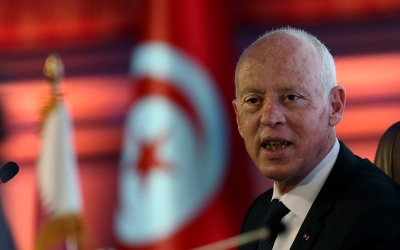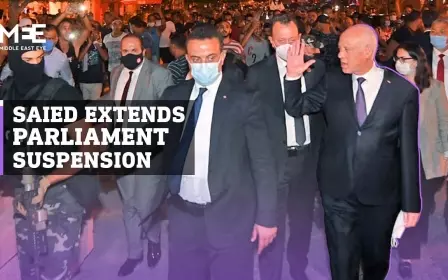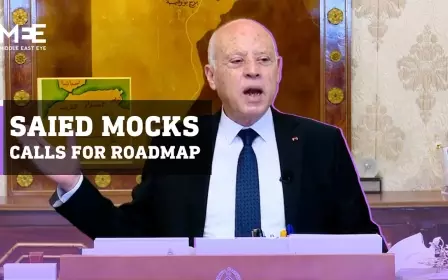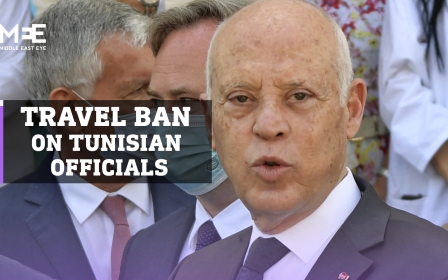Amnesty slams Tunisia's 'unlawful' travel bans amid parliament dismissal
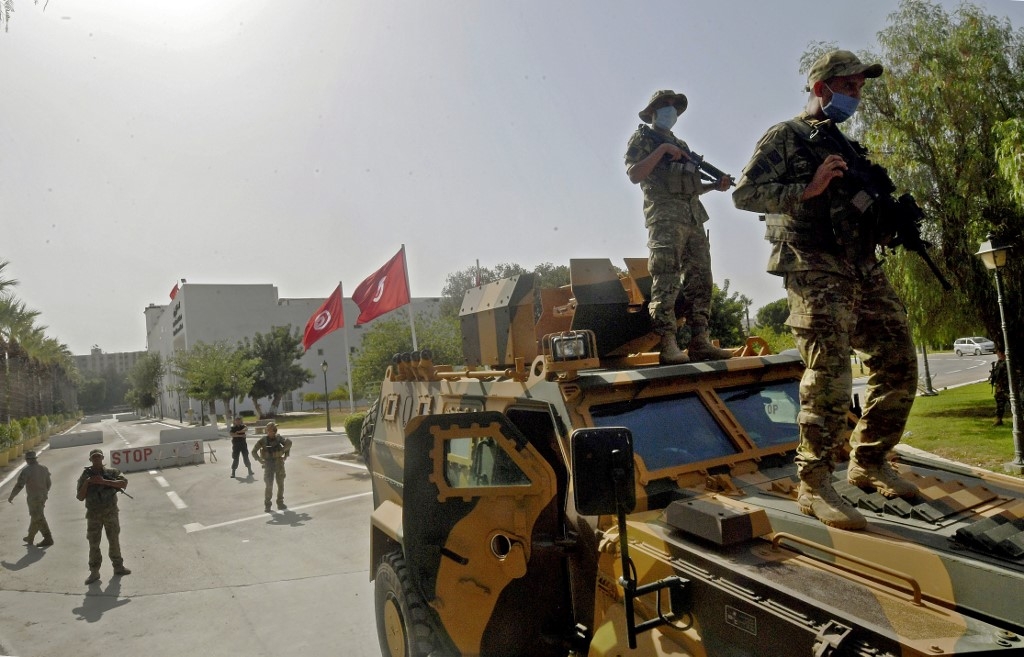
Amnesty International has slammed Tunisia's decision to stop at least 50 officials, politicians and businessmen from travelling abroad since President Kais Saied dismissed the country's prime minister last month and assumed executive authority.
The UK-based rights group said in a statement on Thursday that it had identified at least 50 travel bans targeting judges, civil servants, businessmen, and a parliamentarian.
"The total number facing travel bans since 25 July is likely to be far greater," Amnesty said.
'Saied's indefinite suspension of parliament cannot be a justification for violating rights and freedoms in the country or undermining the judiciary'
- Heba Morayef, Amnesty
In May, Middle East Eye revealed a secret document was being circulated in the presidency recommending Saied invoke Article 80 of the constitution to seize control of the country, citing emergency powers.
In July, he did exactly that, saying the coronavirus and economic situation had become so dire that he needed to freeze parliament and dismiss the government, as well as launch an anti-corruption drive.
New MEE newsletter: Jerusalem Dispatch
Sign up to get the latest insights and analysis on Israel-Palestine, alongside Turkey Unpacked and other MEE newsletters
Hichem Mechichi, his dismissed prime minister, was detained and beaten by security forces after being told that he would be replaced, sources told MEE. Mechichi made no public appearance for 10 days after Saied's announcement.
On Tuesday, Saied extended the suspension of parliament indefinitely and later called the institution a "threat to the state", Mosaique FM quoted him as saying.
'Unlawful and arbitrary'
Amnesty said its review of the 50 cases "shows that those banned from travelling had no actual court case or open judicial investigation against them".
It said they found out about the ban when "verbally informed by airport security officials who failed to present them with a judicial order as required by Tunisian law".
"President Kais Saied's indefinite suspension of parliament cannot be a justification for violating rights and freedoms in the country or undermining the judiciary," said Heba Morayef, Amnesty's deputy director for the Middle East and North Africa.
"Tunisian authorities have imposed unlawful and arbitrary travel bans against people in recent weeks without justification and in the absence of any judicial order, in a blatant violation of their right to freedom of movement."
"Even under exceptional circumstances a person should be able to see and challenge the evidence on which a travel ban is based," she said.
The power-grab has concerned Tunisia's western allies, with the United States outlining to Saied they expect him to return the country to the democratic path it had been following.
In a statement on Tuesday, the Group of the European People's Party (EPP Group), the largest political gathering in the European Parliament, denounced Saied's actions as "an attack against the very heart of the Tunisian democracy".
Saied, whose actions have been commended by the United Arab Emirates and Egypt, appears to enjoy popular support, particularly with youth.
However, the president has yet to confirm a new prime minister or announce any kind of roadmap despite it being demanded by western allies and key players in Tunisia, including the Tunisian General Labour Union (UGTT).
Middle East Eye delivers independent and unrivalled coverage and analysis of the Middle East, North Africa and beyond. To learn more about republishing this content and the associated fees, please fill out this form. More about MEE can be found here.


